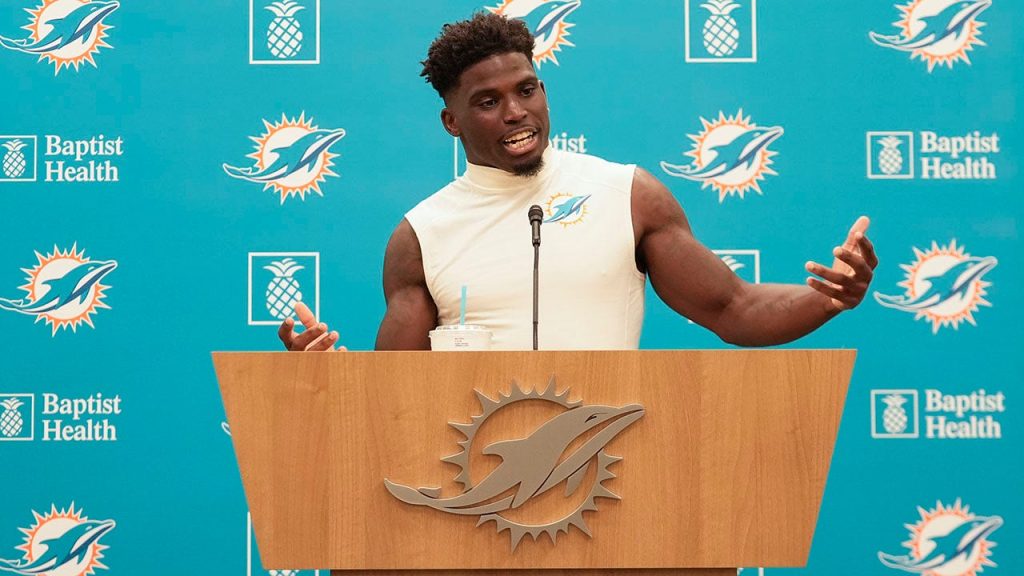Miami Dolphins wide receiver Tyreek Hill and his lawyer, Julius B. Collins, will plead not guilty to two traffic citations following a confrontation with police that occurred on Sunday. Hill was ticketed for reckless driving and driving without a seat belt after a traffic stop where he argued with officers and was eventually removed from his car, handcuffed, and pushed to the ground. Body camera footage showed two Miami-Dade Police officers parked in the middle of a highway before pursuing Hill for speeding in his vehicle. There was no concrete evidence in the footage showing Hill’s exact speed, leading Collins to believe they have a case to plead not guilty based on the officer’s estimation.
The initial interaction with police showed an officer questioning why Hill did not have his seat belt on, with later shots revealing Hill without a seat belt and adjusting his tinted windows. The unclear timeline regarding when Hill removed his seat belt led to the decision to plead not guilty until more information is provided in the official police report. Hill’s refusal to answer whether he was wearing the seat belt while driving, citing attorney-client privilege, further adds to the lack of clarity surrounding the incident. He was eventually handcuffed and forcibly placed on the ground by officers, leading to his release after about 25 minutes once his agent arrived.
Hill has called for the officer who handcuffed him, Danny Torres, to be fired, leading to Torres being placed on paid administrative duty pending an investigation. Torres’ lawyers are demanding his reinstatement and a thorough and objective investigation into the incident before he will comment on the matter. The situation has caused tension between Hill and the Miami-Dade Police department as the circumstances surrounding the traffic stop and subsequent arrest are scrutinized. Hill’s decision to plead not guilty to the charges suggests a belief that there may be discrepancies in the officer’s actions and the official narrative of the incident that could impact the outcome of the case.
Collins indicated that Hill’s plea could change based on the evidence provided in the official police report, suggesting that there may be more to the story that could come to light. The lack of concrete evidence in the body camera footage regarding Hill’s speed and seat belt usage further complicates the situation and fuels the uncertainty surrounding the details of the incident. Hill’s insistence on pleading not guilty until more information is available points to a desire for transparency and accountability in the handling of the case by law enforcement officials. The ongoing investigation and legal proceedings will shed more light on the events that transpired and determine the outcome for Hill and the officers involved.
The public scrutiny surrounding the incident, as well as Hill’s response to the charges, highlights the complex nature of interactions between law enforcement and public figures, especially in cases where the details are not clearly documented or easily discernible. The impact of the incident on Hill’s reputation and standing within the community remains to be seen as the legal process unfolds. The involvement of high-profile individuals like Hill and the subsequent media attention on the case underscore the importance of transparency, accountability, and due process in handling such matters to ensure a fair and just outcome for all parties involved. Ultimately, the resolution of the case will depend on the evidence presented, the legal arguments made, and the decisions of the court regarding the charges against Hill and the actions of the officers involved in the incident.


